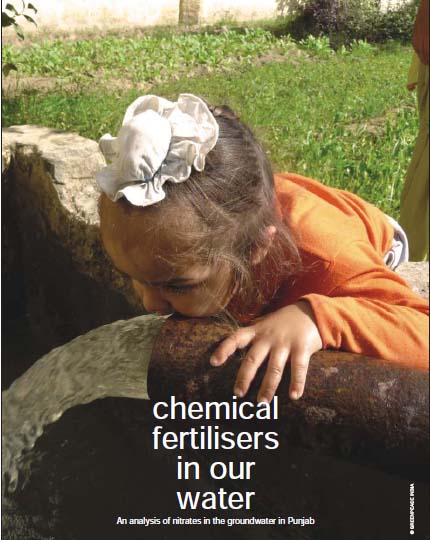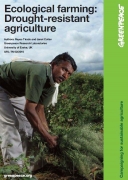Reyes Tirado
Chemical fertilizers in our water - An analysis of nitrates in the groundwater in Punjab by Greenpeace
Posted on 31 Oct, 2011 09:00 AM The level of nitrate in drinking water was tested from groundwater artesian wells located within farms and surrounded by crops (mostly rice and wheat rotations).
The level of nitrate in drinking water was tested from groundwater artesian wells located within farms and surrounded by crops (mostly rice and wheat rotations).
Nitrate pollution in groundwater is associated with nitrogen loads in the environment. In urban areas, it is associated with sewage and in agriculture areas, with livestock sources and nitrogen fertiliser inputs. Nitrate pollution in drinking water can have serious health impact on humans, especially for babies and children. The most significant potential health effects of drinking water contaminated with nitrate are the blue-baby syndrome (methemoglobinemia) and cancer.
Ecological farming: Drought resistant agriculture – A paper by Greenpeace
Posted on 20 Dec, 2010 08:09 PM This paper by Greenpeace on ecological farming illustrates proven, modern farming approaches that help cope with drought. It elaborates on the drought-resistant crop varieties and calls for policy makers to increase funds for research on the system.
This paper by Greenpeace on ecological farming illustrates proven, modern farming approaches that help cope with drought. It elaborates on the drought-resistant crop varieties and calls for policy makers to increase funds for research on the system.
Human-induced climate change is resulting in less and more erratic rainfall, especially in regions where food security is very low. The poor in rural and dry areas will suffer the most and will require cheap and accessible strategies to adapt to erratic weather. This adaptation will need to take into account not only less water and droughts, but also the increased chance of extreme events like floods.
Biodiversity and a healthy soil are central to ecological approaches to making farming more drought-resistant and more resilient to extreme events. Practices that make soils better able to hold soil moisture and reduce erosion and that increase biodiversity in the system help in making farm production and income more resilient and stable.